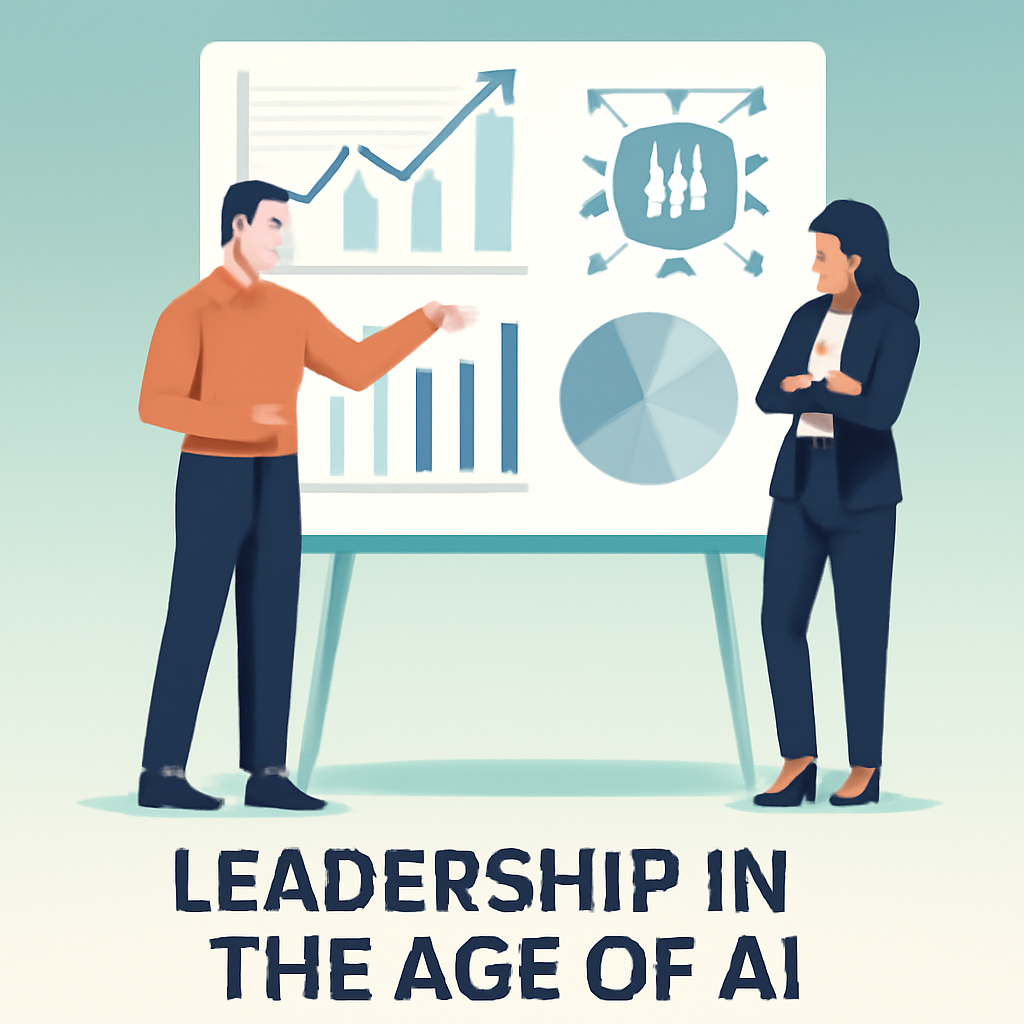Leadership, Relationships, and the Rising Value of Soft Skills in the Age of AI
As artificial intelligence rapidly transforms the workplace, business leaders are encountering an evolving paradox. While technical skills and automation continue to dominate headlines, it is the uniquely human abilities—relationship-building, emotional intelligence, and strategic insight—that are beginning to set professionals apart. This renewed focus on soft skills, particularly among fractional executives and consultants, is reshaping how value is created in a world where algorithms can handle many operational and analytical tasks.
The Human-AI Partnership: Why Technical Skills Alone Aren’t Enough
AI’s rise in business operations has highlighted its own limitations. While algorithms excel at data analysis and repetitive tasks, they struggle with creativity, context, and the nuanced judgment needed for strategic decision-making. Fanny Ramos observed, “I’ve seen people trying to create a whole strategic marketing plan out of AI tools… but getting someone with a strategic point of view that can actually execute is irreplaceable at this moment.” Such insights echo industry findings: AI is a powerful complement, but not a replacement for human creativity, intuition, and the ability to synthesize ideas across different domains.
Scott Mingus describes the distinction: “Large language models operate within a box… the human mind has the ability to think outside that box, cross territories from traditional thought or experience.” This capability turns AI into an amplifier for human expertise rather than a standalone solution.
Organizations increasingly rely on professionals who can blend technical understanding with adaptability and oversight. Business leaders are also tasked with overseeing ethical considerations—such as bias and transparency—that require human judgment and integrity, not just data.
The Resurgence of Soft Skills in Professional Excellence
After decades of prioritizing technical prowess, soft skills are emerging as critical differentiators in the age of AI. Ted Caulkins noted, “Soft skills are going to be more difficult, at least in the early years of AI, to replicate properly or effectively for companies.” Communication, collaboration, and emotional intelligence now play starring roles, especially as automation handles more technical work.
Recent workforce analysis underscores this shift: Communication remains the most requested skill in U.S. job postings, with demand for cross-functional collaboration on the rise. As teams integrate AI into their workflows, human-centered capabilities drive problem-solving and foster workplace culture.
These skills are essential not only for internal coordination but also in translating AI outputs for non-technical stakeholders. The ability to build trust, navigate ambiguity, and align people remains a uniquely human strength, especially as teams adapt to hybrid and AI-augmented environments.
Younger professionals are attuned to this change: more than 85% consider soft skills—like leadership and empathy—more vital to long-term success than AI capabilities. This signals a sustainable move toward viewing interpersonal effectiveness as central to professional growth.
Leadership in the Age of AI: Beyond Knowledge to Human Connection
Leadership itself is undergoing a profound shift. Joseph Frost explains, “If your only value proposition as a fractional is the knowledge you have and expertise, that’s easy to replace with AI. The real value… is our leadership ability—our ability to go in and work with, develop, and collaborate with people. AI will never do that.”
Research supports this shift. While AI can automate half of today’s work activities, leadership roles require inspiration, vision, and people development—a realm still uniquely human. AI-empowered leaders automate routine tasks and data gathering, freeing up their capacity to focus on culture, coaching, and complex problem-solving. Emotional intelligence, in particular, is emerging as an essential leadership trait, enabling managers to foster trust, resolve conflicts, and inspire teams in unpredictable environments.
Successful leaders now combine digital fluency with high emotional intelligence, modeling adaptability for their organizations. The emphasis on human connection positions leaders who excel at team development and interpersonal influence to thrive as technology becomes more embedded in every business function.
Relationship-Building as a Competitive Advantage
In roles that rely on client interaction, trust, and rapport, the human element remains paramount. Chris Murphy noted, “People still buy from people. A machine can write an email or create a proposal, but at the end of the day, there’s someone making a deal with someone else.” While AI streamlines proposals and outreach, business relationships rely on empathy, negotiation, and credibility—qualities that machines can’t mimic.
Ted Caulkins echoed this, saying that client-facing roles demanding nuance and personality “have probably a longer lifespan” than those purely focused on technical execution. The sustained demand for trust-based, consultative partnerships—rather than transactional services—underscores the value of professionals who build enduring connections.
Internally, strong relationships are also key to integrating AI solutions. As organizations adopt new technologies, professionals who can bridge communication gaps and navigate change will drive smoother transitions and greater adoption.
The Future of Fractional and Consultative Roles
The AI era is redefining, rather than replacing, fractional and consulting roles. AI will increasingly automate data-heavy functions, but roles requiring judgment, creativity, and personal touch—such as marketing and sales—are proving more resilient. Ted Caulkins pointed out that while AI threatens roles like fractional CFOs focused strictly on numbers, “marketing and sales have a little bit more nuance…they want to present AI in a way [clients] don’t know it’s AI…it’s still really generic.”
Scott Mingus frames AI as an “acceleration tool,” adding that professionals who combine experience with AI output will remain valuable. These consultants will differentiate themselves by translating AI insights into strategy and execution, fostering buy-in, and working shoulder-to-shoulder with clients.
Joseph Frost crystallizes this future: what defines the “fractional” executive now is not just expertise, but leadership ability and collaborative skill—traits that remain distinctly human and essential for evolving business needs.
Strategic Implications for Organizations and Leaders
Organizations face a strategic crossroads in aligning technology adoption with human capital development. Investing in soft skills—decision-making, leading through uncertainty, and communication—now yields outsized returns. Companies that prioritize building emotional intelligence and teamwork are more likely to drive successful AI integration, nurture trust, and foster adaptability.
This evolution means updating performance evaluation and career development frameworks to value collaboration, innovation, and the ability to work with AI—not just technical output. Leadership development should equally balance digital literacy with behavioral and relational training.
Culturally, organizations must encourage agility, learning, and experimentation. Prioritizing relationship-building and trust—not just efficiency—sets a foundation for resilience and differentiation. As AI becomes standard, it’s the human skills that form the moat around an organization’s true competitive advantage.
Conclusion
The age of AI is ushering in a renaissance for soft skills. As automation and advanced analytics become commonplace, it’s the mastery of human connection, creativity, and leadership that will define professional and organizational success. Research and real-world experience from fractional executives and consultants consistently highlight that sustainable value and differentiation stem not from technical expertise alone, but from the ability to inspire, relate, and adapt.
For organizations and individuals alike, investing in communication, emotional intelligence, and collaborative leadership is essential preparation for a business landscape where technology is ubiquitous but human relationships remain irreplaceable. The future will belong to those who build bridges between AI’s computational power and the unique strengths of human insight and connection.
Sources
- LinkedIn Report: Global Talent Trends
- Deloitte: Skills-Based Organization Insights
- Harvard Business Review: Leading with Emotional Intelligence
- CertaintyNews: The Human Element of AI Integration
- CertaintyNews: Soft Skills as Key to Leadership Success
- McKinsey: The Future of Work in the Age of AI
Related articles from CertaintyNews:

